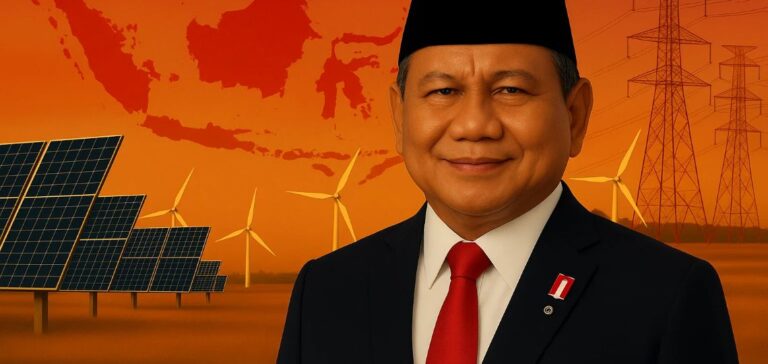Indonesia plans to add 69.5 gigawatts (GW) of electricity generation capacity to its national grid by the end of 2034, according to a plan detailed by the Ministry of Energy on May 26. This programme is part of a ten-year roadmap that includes renewable energy sources, gas, coal, and a first contribution from nuclear power.
Implementing this plan will require an estimated investment of IDR2,967.4tn ($235bn). State-owned utility Perusahaan Listrik Negara is set to invest IDR567.6tn in new power plants, while the government will open IDR1,566.1tn in investment opportunities to private sector actors.
Energy mix and source diversification
The 2025–2034 plan includes 42.6 GW of new capacity from renewable sources such as solar, hydropower, and geothermal energy. It also comprises 10.3 GW of energy storage infrastructure, along with 10.3 GW of new natural gas-fired power plants.
Despite its stated ambition to reduce greenhouse gas emissions, Indonesia plans to add 6.3 GW of coal-fired power plants, confirming the continued role of this resource in its energy mix. In addition, the country plans to introduce nuclear power with a first phase of 0.5 GW scheduled to be operational in 2032.
Transmission network and interconnection needs
Beyond generation capacity, the plan includes the construction of 47,758 kilometres of transmission lines. This expansion aims to connect production areas, often located in remote regions, with high-demand urban centres.
According to the Ministry of Energy, these transmission infrastructures are essential for integrating renewable energy into the national grid. Indonesia has previously highlighted the importance of linking high-consumption zones with clean energy production areas to strengthen the grid’s resilience and reliability.
A financial framework awaiting clarification
Although the plan outlines substantial investment prospects, the financing mechanisms remain to be detailed. The government relies on significant private sector participation to meet its targets, notably through public-private partnerships.
The ministry stated that the specifics of tenders and fiscal incentives will be disclosed in the coming months to attract investors. This plan forms part of Indonesia’s broader energy development strategy as Southeast Asia’s largest economy seeks to support growth while diversifying its energy sources.






















